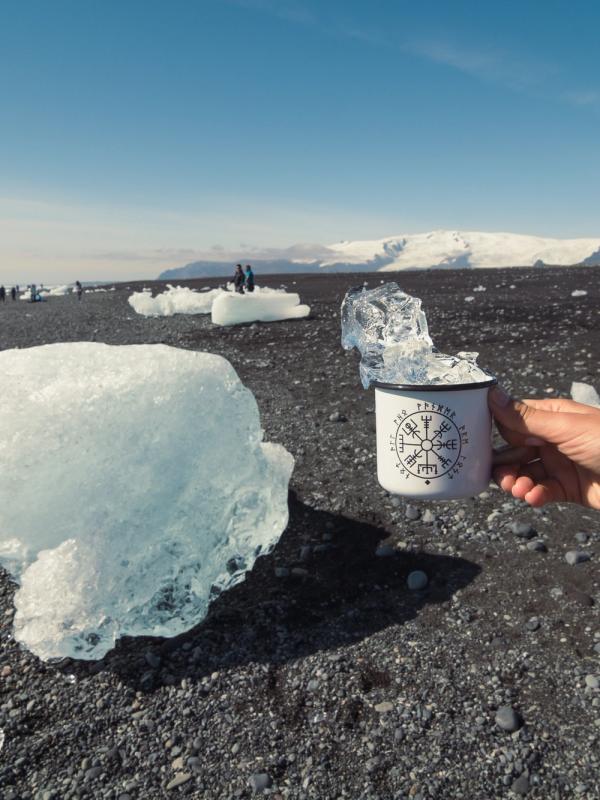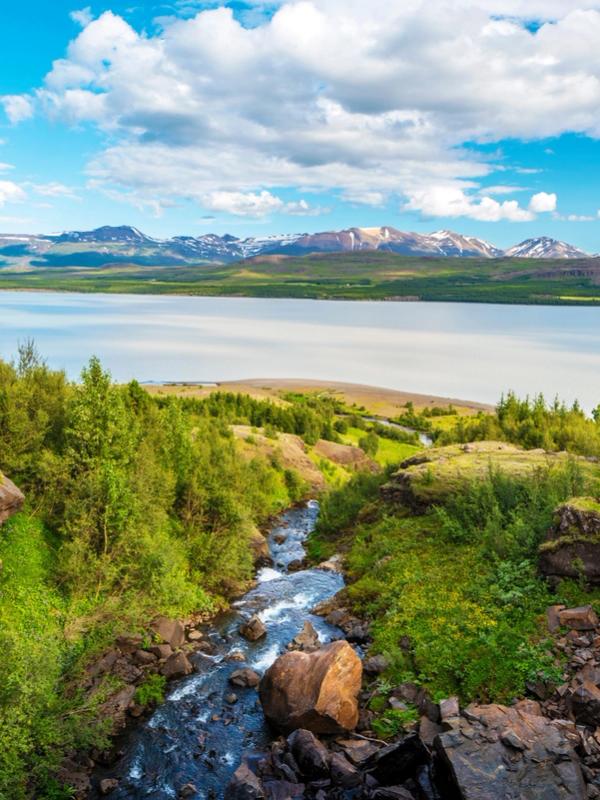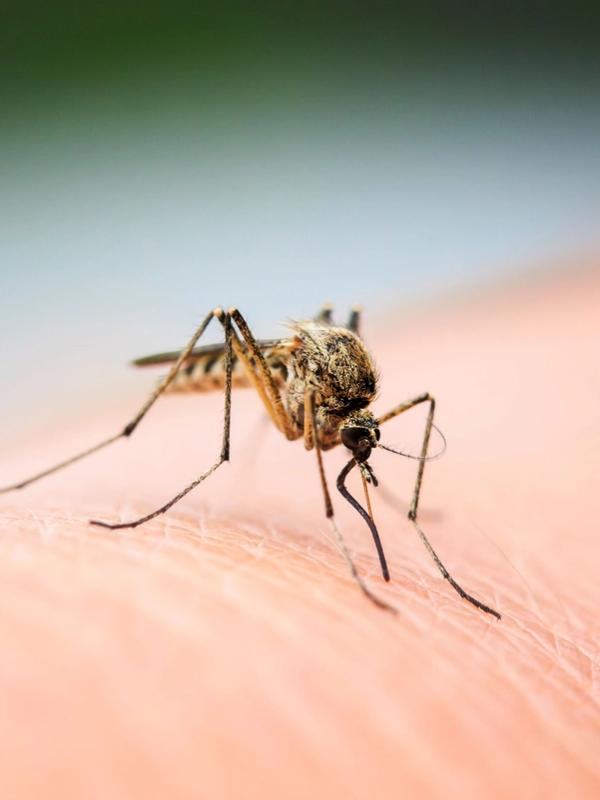
Are there mosquitoes in Iceland? Complete 2026 Guide
For a long time, Iceland had a reputation that sounded almost too good to be true. It was one of the only places on Earth where mosquitoes simply did not exist. Along with Antarctica, it stood apart as a rare exception. You could camp, hike, or sit outside at night without worrying about buzzing ears or itchy bites.
That reputation changed in late 2025.
Iceland is still mostly mosquito-free in everyday life, but scientists have now confirmed that wild mosquitoes were found living outdoors for the first time. This does not mean Iceland suddenly has mosquito problems, but it does mark an important shift in its natural history.
Here’s what’s going on, why Iceland stayed mosquito-free for so long, what exactly happened in 2025, and what it might mean going forward.
Key takeaways
- Iceland was historically one of only two mosquito-free places on Earth, along with Antarctica
- The lack of mosquitoes was caused by climate instability, freeze-thaw cycles, and isolation
- In October 2025, wild mosquitoes were confirmed in Iceland for the first time
- The species found was Culiseta annulata, which tolerates cold climates
- Climate warming is the main reason they were able to survive
- As of early 2026, there is no established mosquito population
- Travelers still do not need to worry about mosquito bites
- Midges, especially near Lake Mývatn, remain the main insect nuisance
Iceland's Mosquito-Free Status: Fact or Fiction?
For centuries, Iceland truly had no native mosquitoes. This was not a tourism slogan or a fun myth. It was a real biological fact that caught the attention of scientists around the world.
The Icelandic Institute of Natural History even keeps a mosquito preserved in a jar. It was caught in the 1980s after arriving on a plane from Greenland. That mosquito never reproduced, and for decades, it remained the only known mosquito ever recorded in the country.
Until 2025, no mosquitoes had ever been found living or breeding outdoors in Iceland’s natural environment.
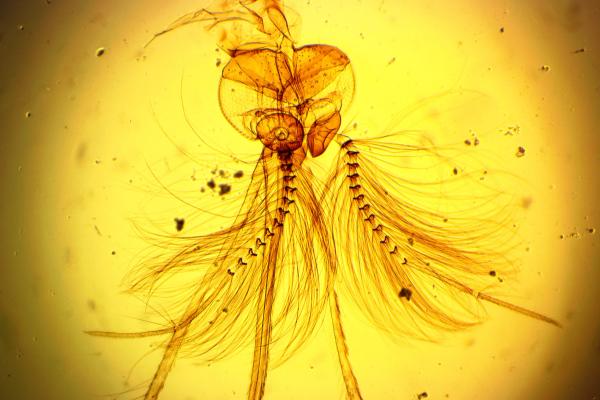
Why Were There No Mosquitoes in Iceland?
For most of its history, Iceland was just about the worst place mosquitoes could try to settle. Even though nearby regions have plenty of them, Iceland stayed different, which led scientists to look closely at what was stopping them.
Unstable Climate and Freeze-Thaw Cycles
The biggest reason mosquitoes failed in Iceland was the weather. Mosquitoes need stable temperatures and standing water to get through their life cycle. Iceland does not really offer that.
The country goes through frequent freeze-thaw cycles, sometimes several times a year. Water freezes, thaws, and freezes again before mosquito larvae have time to develop. That process kills them before they ever reach adulthood. It turns out this kind of instability is even harder on mosquitoes than simple cold.
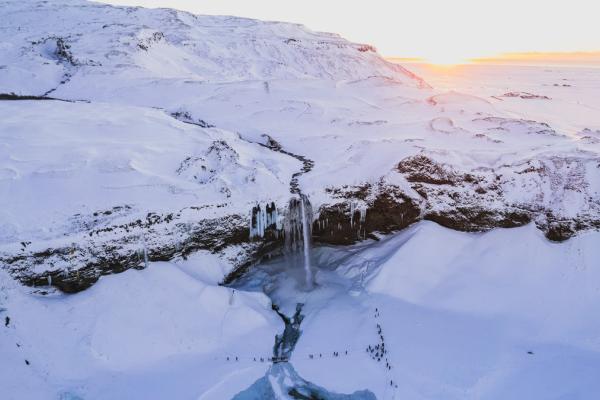
Cold Temperatures and Long Winters
Even during summer, temperatures in Iceland have traditionally been unreliable. Warm spells do not always last long enough for mosquitoes to develop properly. Winters are long and harsh, which wipe out immature stages and prevent most species from surviving year to year.
Geographic Isolation
Iceland’s location also matters. Sitting alone in the North Atlantic, about 600 to 850 miles from nearby land, it is hard for mosquitoes to reach on their own. They are not strong fliers, so they usually only arrive by accident on planes, ships, or cargo.
Even when a mosquito arrived, it still needed others to survive and reproduce. Historically, that never happened.
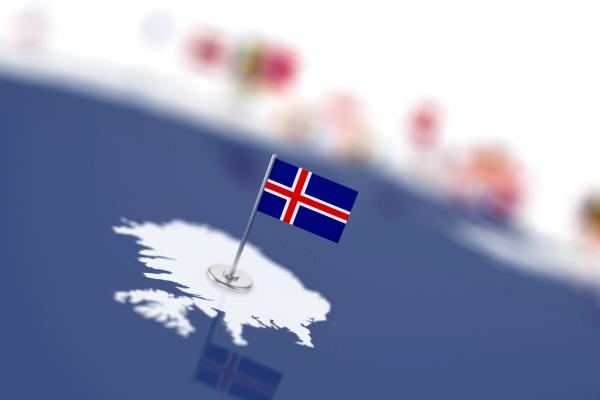
Iceland's Unique Ecosystem and Soil Composition
Some researchers think Iceland's volcanic soil might also help keep mosquitoes away. The island's soil and water have unusual chemical properties due to volcanic activity, potentially creating conditions that mosquito larvae can't survive in.
However, this theory has less scientific support than the climate and isolation explanations. While the soil composition might contribute, scientists generally agree that the unstable climate is the main factor preventing mosquitoes from establishing.
Iceland's ecosystem evolved without mosquitoes, so other insects, such as midges, filled those roles. This helps explain why the absence of mosquitoes hasn't created a gap in Iceland's food web.
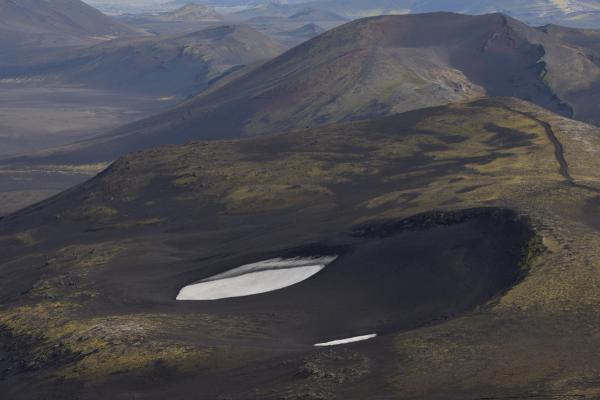
Climate Evolution and the Future of Iceland's Mosquito-Free Status
Iceland's mosquito-free status might not last forever. Climate is gradually changing, and with it the very conditions that have kept mosquitoes at bay for centuries.
Over the past twenty years, Iceland's average air temperature has risen by about 2 degrees Fahrenheit. This warming has already brought approximately 200 new insect species to the island, such as the white-tailed bumblebee, the Tree Bumblebee, and the Elfpunkt Ladybird, and mosquitoes could eventually join them.
Climate models suggest that as temperatures continue to rise, Iceland's freeze-thaw cycles might become less frequent. If summer temperatures become more stable and water bodies maintain consistent temperatures for longer periods, conditions might become suitable for mosquito larvae to develop fully. However, Iceland’s weather remains unpredictable, with some months being colder than average and others hotter. Even in the same month, the average varies from region to region.
The most likely new arrivals would be mosquito species from Scandinavia or the British Isles, which are already adapted to cooler northern climates. Species like Aedes communis or Culex pipiens could potentially survive in a warming Iceland.
As of 2025, no established mosquito populations have been found in Iceland. The country's naturally windy conditions and still variable weather continue to provide some protection, though researchers are monitoring the situation closely.
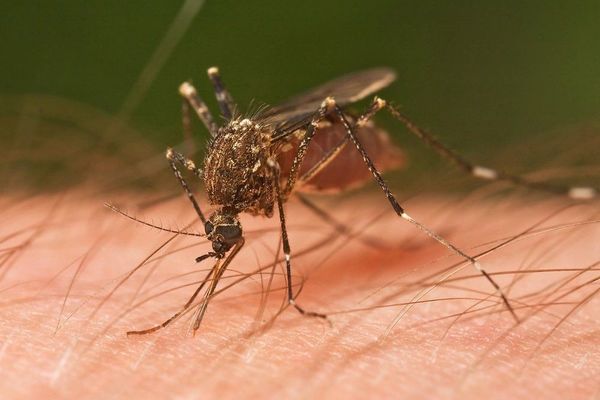
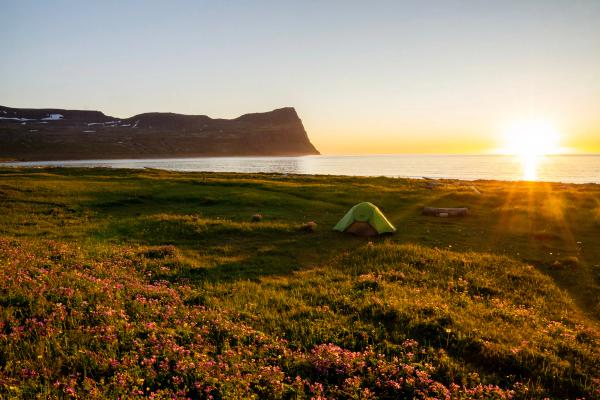
October 2025: The First Wild Mosquitoes in Iceland 🇮🇸
Iceland’s mosquito-free reputation officially changed in October 2025. It did not happen dramatically, but it was a big deal scientifically.
What Was Found
- Three mosquitoes, two females and one male
- Collected between October 16 and 18, 2025
- Found in Kiðafell, in the Kjós municipality, about 32 km or 20 miles north of Reykjavík
- Attracted using red wine-soaked ribbons, a technique normally used to catch moths
The mosquitoes were examined by the Icelandic Institute of Natural History and officially confirmed on October 21, 2025.
The Species: Culiseta annulata
All three mosquitoes were identified as Culiseta annulata. This species is common across northern Europe, the UK, Scandinavia, and even parts of Siberia.
One reason this species stands out is that it can overwinter as an adult by sheltering indoors or in protected spaces. That gives it a better chance of surviving in cooler climates. It does bite humans and animals, but it is not known for spreading major diseases.
This discovery marked the first time wild mosquitoes had ever been confirmed in Iceland’s natural environment.
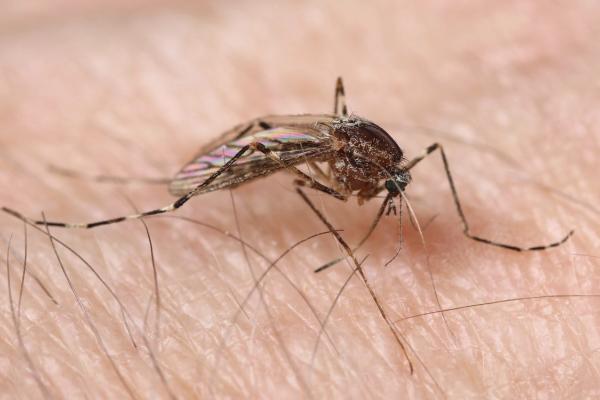
Why Are Mosquitoes Appearing Now?
Once the mosquitoes were confirmed, the obvious question came up. Why now?
Scientists point to changes in the environment that have slowly weakened the natural barriers that once made mosquito survival impossible.
Climate Change and Warming Temperatures
Climate change is the main explanation. Iceland has experienced much warmer springs and summers in recent years. In 2025, temperatures even passed 26°C or 79°F in some areas.
Those warmer conditions give mosquitoes enough time to complete life cycles that would have failed in the past due to sudden cold weather.
Longer Breeding Windows
Freeze-thaw cycles are still common, but they are becoming less reliable as a barrier. Water stays unfrozen for longer periods, which creates short but real opportunities for cold-tolerant mosquito species to survive.
The Arctic region is warming up to four times faster than the global average, and Iceland is part of that pattern.
How Did They Get There?
There is no single confirmed answer, but scientists think a few possibilities are likely.
- Mosquitoes hitchhiking on airplanes or cargo ships
- Human-assisted transport through trade and tourism
- Better chances of survival after arrival due to milder conditions
Mosquitoes had arrived in Iceland before. What changed is that some of them finally managed to survive outdoors.
What This Means for Iceland Going Forward
For now, this discovery does not change daily life in Iceland. But it does raise bigger questions about the future.
Scientists are paying close attention to what this could mean for Iceland’s ecosystems, its climate trends, and the possibility of other new species arriving.
Population Establishment
As of January 2026, there is no confirmed breeding population of mosquitoes in Iceland. Researchers are watching closely to see if Culiseta annulata can survive winters consistently and reproduce year after year.
Disease Risk
The species found is not known for spreading serious diseases. Still, its presence raises concerns about what might come next. As temperatures continue to rise, other mosquito species, including disease carriers, could eventually move north.
Loss of a Natural Rarity
Even if mosquitoes remain rare, Iceland’s long-standing status as one of the world’s last mosquito-free places is likely gone.
What This Means for Travelers
For travelers, very little has changed so far.
- There are no mosquito swarms
- Mosquito bites are still not a normal concern
- You do not need to pack mosquito repellent for most trips
Midges remain the main insect issue, especially around Lake Mývatn in summer. A head net or light insect repellent is still useful there.
Late spring in May and early fall in September are still the best times to experience Iceland with minimal insect activity.
How Iceland Compares to Other Northern Destinations
Iceland's mosquito-free status becomes even more notable when compared to other northern destinations, which often have large mosquito populations.
Alaska, northern Canada, and parts of Scandinavia are known for their dense summer swarms of mosquitoes. In Alaska's Yukon Delta, mosquitoes can emerge in such numbers that they've been known to harm caribou. Greenland, despite being colder than Iceland, has at least two species of mosquitoes.
This difference ultimately stems from variations in climate patterns. While these other northern regions have more stable summer temperatures, Iceland's position in the North Atlantic creates more variable conditions. The Gulf Stream influence on Iceland creates the temperature changes that have historically prevented mosquitoes from establishing.
For travelers who have experienced the mosquito clouds of the Arctic Circle in summer, Iceland offers a pleasant alternative. You can explore similar landscapes and enjoy similar activities, but without needing head nets, constant repellent, or rushed tent setups.
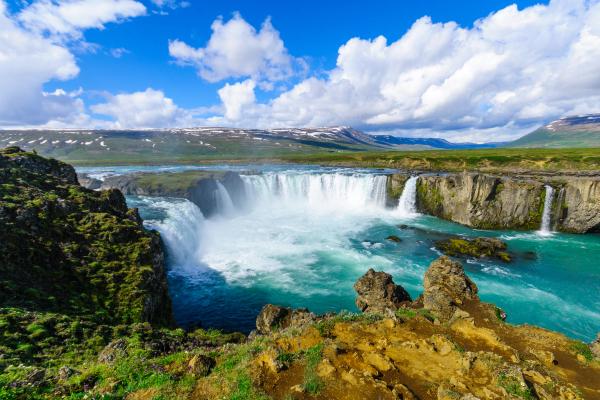
Conclusion
Iceland's mosquito-free status is a remarkable natural phenomenon and a significant advantage for travelers. While you might see other insects, particularly midges, around Lake Mývatn, the absence of mosquitoes makes outdoor exploration more comfortable and alleviates concerns about mosquito-borne diseases.


